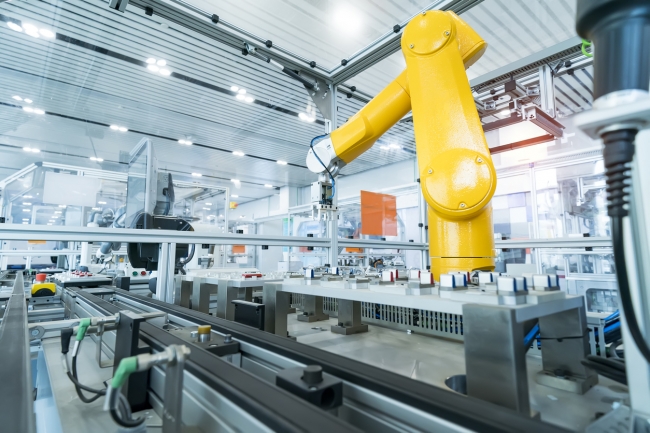2 minute read
Annual Investment Allowance increase could provide UK economy with £27 billion boost
Increasing the Annual Investment Allowance (AIA) from its current rate of £1 million to £5 million would more than double projected business investment growth, according to analysis conducted by Cebr on behalf of accountancy and business advisory firm BDO LLP.
In its Autumn Budget, the government announced it would temporarily raise the AIA – a policy designed to encourage business investment in plant and machinery – from £200,000 to £1 million until the start of 2021. Although this was widely welcomed, the UK economy is set to miss out on important productivity gains if the policy does not go further to incentivise businesses to invest.

An AIA increase to £5 million could boost the British economy by approximately £27 billion / Picture: Getty/iStock
Under Chancellor Phillip Hammond’s existing policy, business investment is expected to be boosted by 1.7% over the next five years. If the AIA was raised to £5 million indefinitely, the research found that business investment would increase by up to 4.1%– setting the UK on a significantly higher growth trajectory.
Hammond’s policy will also see labour productivity rise 0.3% by the end of 2023, the findings showed. If the AIA was raised to £5 million, this figure would increase almost five-fold to 1.4% during the same period. This would generate an additional £27 billion to the UK economy over the next five years if British employees worked the same 52.9 billion hours performed in 2016.
UK productivity growth has stagnated considerably since the 2008 financial crisis, falling behind that of its G7 counterparts.
GDP per hour worked in the UK increased by just 1.1% between 2008 and 2016 – compared with 8.5% in the United States, 7.4% in Japan and 6.5% in Germany. This sits well behind Britain’s pre-financial crisis trend.
While the UK’s level of output per hour (USD 48.1) was above that of Italy (USD 47.7) and Japan (USD 41.5) in 2016, workers in the United States (USD 63.5), Germany (USD 60.0) and France (USD 59.1) are all significantly more productive than the UK for every hour they work. If this sluggish rate of growth persists, the UK will continue to limp behind its G7 peers, BDO’s analysis concluded.
Tom Lawton, Head of Manufacturing at BDO LLP, said: “By raising the AIA in the 2018 Budget, the Chancellor took a meaningful step to promote business investment and productivity. While this was welcome news at the time, due to economic headwinds caused by Brexit uncertainty in the intervening months, we would encourage him to use next week’s Spring Statement to raise it further.
“Although an increase in the AIA will lead to a direct reduction in the total level of corporation tax receipts, there will be offsetting increases in other tax receipts from elsewhere in the economy. Higher productivity would feed through into the earnings of those in employment, stimulating higher receipts from income tax, VAT (as a result of higher consumption), and stamp duty via indirect effects in the housing market.”

BDO Head of Manufacturing, Tom Lawton / Picture: BDO
